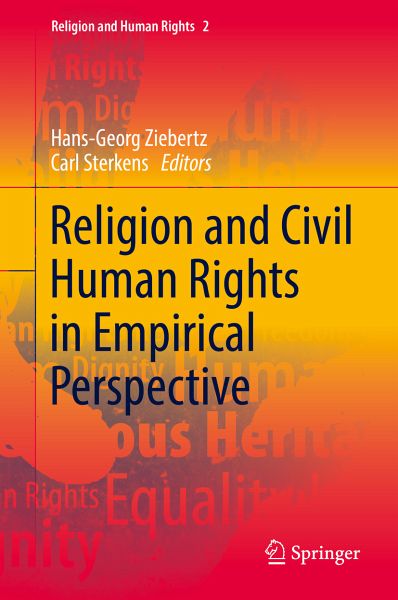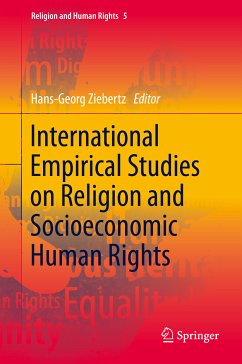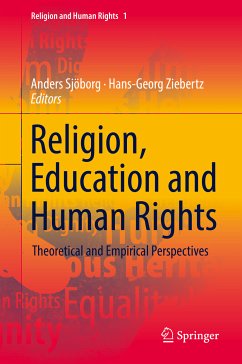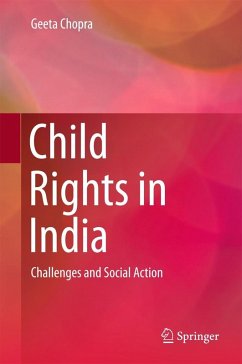
Religion and Civil Human Rights in Empirical Perspective (eBook, PDF)
Versandkostenfrei!
Sofort per Download lieferbar
40,95 €
inkl. MwSt.
Weitere Ausgaben:

PAYBACK Punkte
20 °P sammeln!
This volume offers an empirical perspective on the so-called first generation of human rights. It explores the legitimization of these human rights by individual people, both because of their religion and because of their vision of what constitutes human dignity. The book addresses such issues as the foundation of human rights, the necessity of a broader conversation about human rights, aspects of freedom of religion, and the role of religion in Belarus, Britain, Chile, Germany, Italy, Nigeria, Norway and Tanzania. Taking an international comparative perspective, the volume answers the questio...
This volume offers an empirical perspective on the so-called first generation of human rights. It explores the legitimization of these human rights by individual people, both because of their religion and because of their vision of what constitutes human dignity. The book addresses such issues as the foundation of human rights, the necessity of a broader conversation about human rights, aspects of freedom of religion, and the role of religion in Belarus, Britain, Chile, Germany, Italy, Nigeria, Norway and Tanzania. Taking an international comparative perspective, the volume answers the question as to what extent adolescents in different countries support civil human rights and what influences their attitudes towards these rights.
As the diversity of the contributions in this volume shows, the relationship between religion and civil human rights is complex and multifaceted. Studying this complicated relationship calls for a variety of theoretical perspectives and rigorous empirical testing in different national contexts. This book's empirical approach provides an important complementary perspective for legal, political and public debates.
As the diversity of the contributions in this volume shows, the relationship between religion and civil human rights is complex and multifaceted. Studying this complicated relationship calls for a variety of theoretical perspectives and rigorous empirical testing in different national contexts. This book's empirical approach provides an important complementary perspective for legal, political and public debates.
Dieser Download kann aus rechtlichen Gründen nur mit Rechnungsadresse in A, B, BG, CY, CZ, D, DK, EW, E, FIN, F, GR, HR, H, IRL, I, LT, L, LR, M, NL, PL, P, R, S, SLO, SK ausgeliefert werden.












